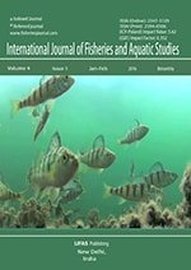 In Vitro Evaluation of Compost Extracts Efficiency as Biocontol Agent of Date Palm Fusarium Wilt African Journal of Microbiology Research August 2017 Link Here In Morocco, Fusarium Wilt is called Bayoud, and a group of researchers want to keep it from wreaking havoc on its date palms industry. To do this, they investigated what affect compost tea extract had on lab grown Fusarium oxysporum albendinis. Researchers used tea extracts from chicken manure compost, and olive mill waste. The finished composts were liquefied, some of which was sterilized and some was not. Then, the researchers applied 5 different concentrations (10-40%) of teas to petri dishes, and then set an actively growing Fusarium colony on the dish. The petri dishes were incubated for eight days. The growth of the Fusarium's mycelium was measured from the center of the colony on outward (the longer the mycelium, the less effective the compost extract). The researchers found that the sterilized tea only worked at the highest concentration, but the non-sterilized tea was EFFECTIVE AT ALL CONCENTRATIONS. Fusarium growth was inhibited from 20%-97% as compared to the control group that had no compost extract applied. The higher concentration of tea, the less the Fusarium was able to grow. Considering the low cost of compost tea, this research is great information for any small farmer looking to become more efficient, while also being eco-friendly. Thanks Morocco!!!
0 Comments
 Effects of molasses and compost tea as foliar spray on water spinach (Ipomoea aquatica) in aquaponics system International Journal of Fisheries and Aquatic Studies 2017 Full Article Here A group of brainy botanists from Bangladesh wondered if they could improve the yield of their water spinach crop by supplementing plants with foliar sprays. The crop is grown in a recirculating hydroponic system using a NFT design (Nutrient Film Technique) which flows shallow water over the plant's root. The effluent of is then returned to a reservoir which contains fish, in this case tilapia. The fish's waste becomes plant food through a microbial process called nitrification. There are limitations to growing certain plants aquaponically, as the nutrient levels must remain low enough to ensure the health of the fish. The use of supplemental foliar sprays is used to introduce essential nutrients that might be in limited supply. The scientists in this case wanted to see if there was benefit to using a simple aerated compost tea. In the experiment, they sprayed spinach with either aerated compost tea, a molasses solution, or just plain water. They found that the spinach grown with the compost tea spray was significantly heavier than spinach grown with the molasses spray, and well more so than the spinach sprayed only with water. The experiment showed that compost tea has a place in emerging aquaponic technology.  Effects of Soil Quality Enhancement on Pollinator-Plant Interactions August 2012 Psyche Journal of Entomology Link Here A group of noteworthy scientists in North Carolina has shown that vermicompost helps pollinators do their thing. A trial was set up with Boston Pickler cucumbers (Cucumis sativus) grown in a commercially available potting soil, one set of plants was amended with vermicompost (at 1/3 volume) and one without (fed synthetic nutrients). The radical researchers then watched how bumblebees (Bombus impatiens) responded to the two different sets of plants. It turns out, plants amended with vermicompost: 1. Increased visit length of the bumblebees (tastier nectar?) 2. Reduced time to first discovery (more fragrant flowers?) 3. Bumblebees that fed on vermicompost amended flowers had larger ovaries (indicates higher nutrition quality in pollen) 4. Pollen from the vermicompost grown flowers had higher protein content. 5. Sugar content in the nectar of vermicompost fed flowers was slightly higher. These results indicate that not only does using vermicompost produce higher quality plants, but also helps to increase the health and activity of our precious pollinators. You can do your part by using vermicompost/worm castings in your garden through amending soil or by using it as part of your compost tea recipe. If the worms only knew how important they are. |
Archives
June 2024
Categories
All
|
Contact Us
Why TeaLAB?TeaLAB is committed to helping people and their gardens to become more self- sufficient, healthier, and productive. Grow your sweetest corn, your biggest watermelon, your tallest quinoa, your tastiest tomato, and your happiest you.
TeaLAB was founded to teach people how to garden organically, so that we can become more closely connected with the land. Our goal has been to simplify growing methods so that gardeners have a positive experience in the garden. TeaLAB is where the garden meets the laboratory. From around the world and into your backyard, our products contain ingredients that are sourced both locally and globally. Using methods both ancient and cutting edge, TeaLAB promotes maximum biology. Grow with TeaLAB. |

 RSS Feed
RSS Feed
